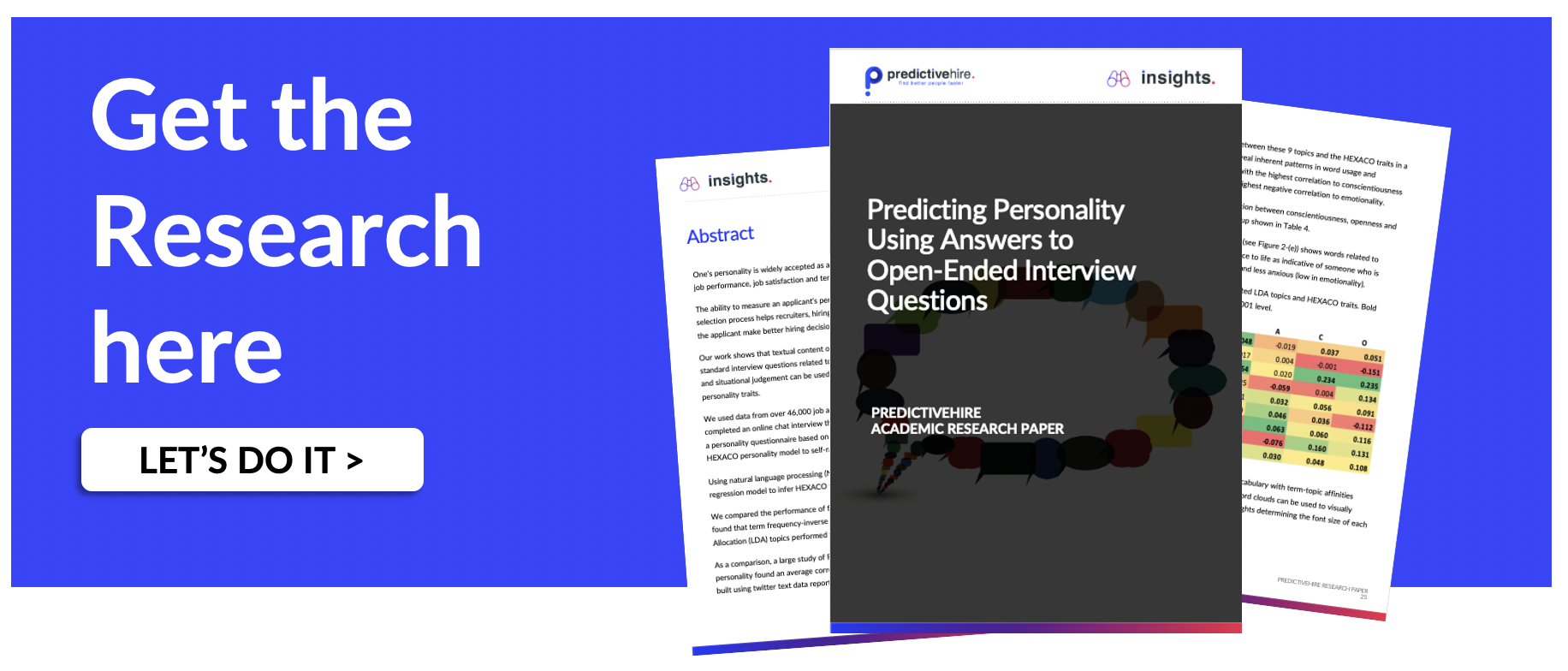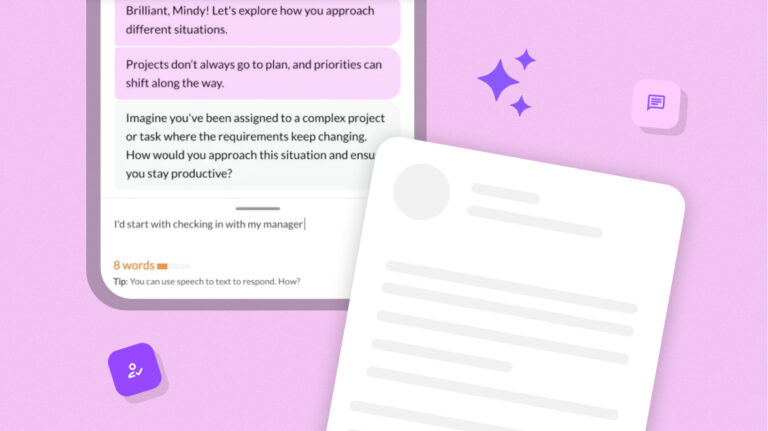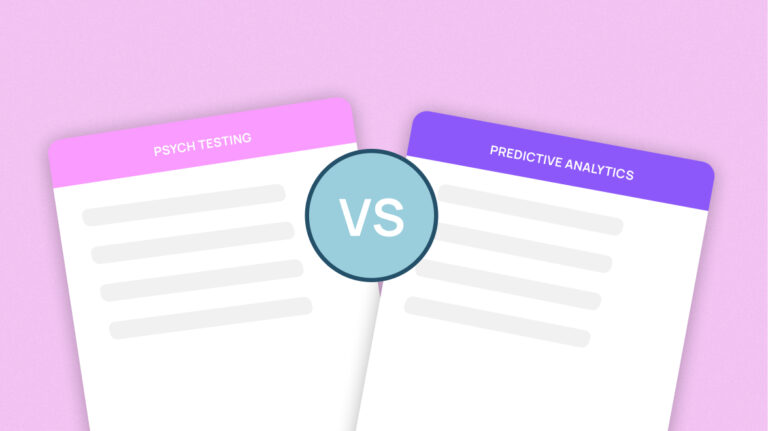How Text-Based Interviews are Replacing Personality Assessments
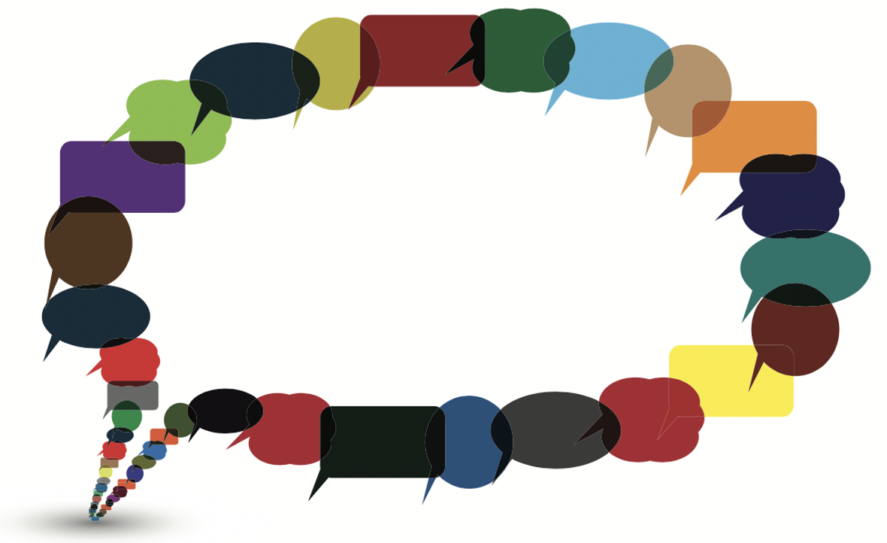
Re-inventing personality assessments through text-based interviews.
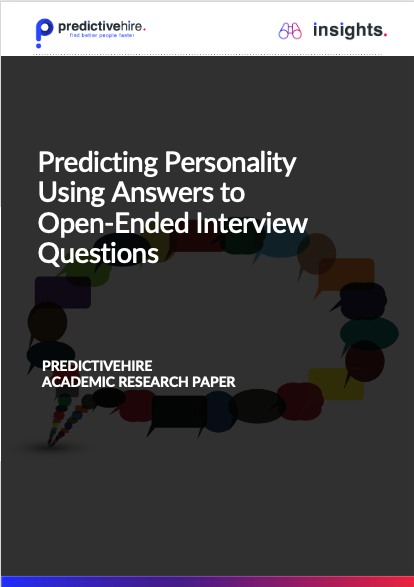 PredictiveHire has recently released a scientific research paper that shows that a simple chat interview can measure personality with improved user experience and at a fraction of the time required for a traditional psychometric assessment.
PredictiveHire has recently released a scientific research paper that shows that a simple chat interview can measure personality with improved user experience and at a fraction of the time required for a traditional psychometric assessment.
It proves that textual content of answers to standard interview questions related to past behaviour and situational judgement can be used to reliably infer personality traits. It explores how the AI techniques of Natural Language Processing (NLP) and Machine Learning (ML) present a new future for personality assessments.
Why this matters?
The ability to measure an applicant’s personality in the selection process helps recruiters, hiring managers and the applicant make better hiring decisions, including removing the subjective biases involved in human interviewer judgement of candidate personality.
Personality is widely accepted as an indicator of job performance, job satisfaction and tenure intention.
The research outcomes suggest that the work is more enjoyable and thus engaging to the individual and beneficial to the employer and the society at large when there is congruence between one’s personality and career.
However, conducting a traditional personality test adds an extra cost to the recruitment process. It also tends to diminish candidate experience as personality tests are less favoured by candidates compared to other assessment methods such as job interviews.
Interviews have been the preferred method of assessment
Therefore personality tests are not as ubiquitous as employment interviews. Actually, for the past 100 years, interviews are the most widely used selection method in. However, strong criticism of the job interview is the likelihood of bias introduced by the prejudices of the interviewer.
Structured interviews where the same questions are asked from every candidate, in a controlled conversation flow and evaluated using a well-defined rubric have shown to reduce bias and also increase the ability to predict future job performance. The questions asked in a structured interview are derived using a job analysis as opposed to interviewer preference and are typically based on past behaviour and situational judgement.
This research paper is written by Madhura Jayaratne, Data Scientist and Buddhi Jayatilleke, Principle Data Scientist of PredictiveHire.
The ability to infer personality from interview responses could replace lengthy and less favoured personality tests while also providing objective outcomes from text interviews.
